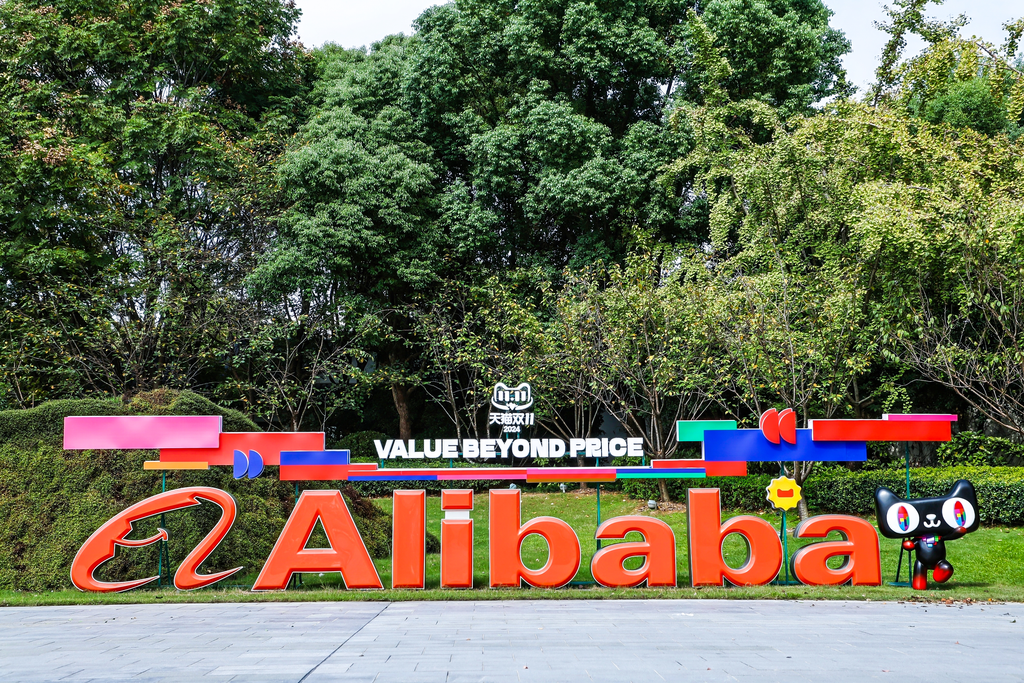
Photo credit: Shutterstock
U.S. brands sold roughly $66.2 billion worth of products, from pet foods to cosmetics, via Alibaba Group’s marketplaces to Chinese consumers in 2022, a new report found.
Cross-border e-commerce on Alibaba platforms has expanded by about 47.4% since 2019 and is a contributor to U.S. economic growth.
The swell in U.S. brand sales directly added $38.4 billion to the U.S. GDP and created 170,867 jobs in 2022, according to the report compiled by NDP Analytics and commissioned by Alibaba Group.
These jobs paid nearly $19.8 billion in wages and sent ripples along supply chains that spilled over into local communities.
All of this economic activity encompassed a $52.9 billion contribution to U.S. GDP, support for 402,911 direct and indirect U.S. jobs, and $36.4 billion in wages in one year.
American brands, both large and small, are reaping the opportunities offered by the massive Chinese consumer market.
“Our partnership with Alibaba and the success we’ve seen in China has helped us hire more employees and open a new manufacturing facility,” Veronica Pedersen, founder of Texas-based small business Timeless Skin Care, explained to Alizila last year.
Based on the official output statistics by business size and small business classifications published by the U.S. Bureau of Economic Analysis, the report’s authors estimated U.S. small businesses with under 100 employees generated $6.7 billion in sales on Alibaba platforms in 2022.
East To West Coast
In addition to generating revenues directly for American businesses, U.S. products sold on Alibaba produce substantial spillover benefits along supply chains across the U.S.
When U.S. businesses make products to sell to consumers abroad, those sales increase prosperity for their employees, communities and businesses writ large.
In 2022, the economic benefits of these roles were distributed nationwide, according to Alibaba’s report, which groups economic contributions by U.S. Census Bureau division.
The biggest beneficiary in terms of job creation was the Pacific division – Alaska, California, Washington, Oregon and Hawai’i – where 117,270 jobs were supported or created as a result of U.S. brand sales on Alibaba platforms.
“You have to plant seeds for the future. And for me, China was always our future,” California-based plant-based hair wellness brand Vegamour founder and chairman Dan Hodgdon told Alizila in an interview last year.
Over 52,000 jobs were supported or created in the South Atlantic division stretching from the District of Columbia to Florida, while the Midwest and Northeast hosted more than 74,000 and 66,000 employment opportunities, respectively.
A Smorgasbord of Offerings
U.S. brands offer a wide range of products via Alibaba’s marketplaces, and increasing demand for those products provides opportunities for U.S. companies and workers back home.
Florida-based pet food company Timberwolf entered China in 2008 but struggled to find a foothold until three years ago when it launched a store on Alibaba’s cross-border e-commerce platform Tmall Global.
Since then, Timberwolf has become one of the fastest-growing pet food brands in China and has leveraged its strong sales to expand its workforce back home.
“Due to our success in China, Timberwolf has actually been able to expand our global team. In the United States, we’ve actually added additional offices. We’ve also seen our production over the years double,” Kam Martin, the brand’s chief operating officer, shared with Alizila.
Executives at hair and skin care specialist DS Laboratories concur.
The Miami-headquartered dermatological brand joined forces with Tmall Global in 2021, and China is now on track to become its second-largest market after the U.S.
“We’re expanding our facilities by 30% [and] we’re going to launch several other products,” Fernando Tamez, CEO at DS Laboratories, told Alizila.
A Fit for Every Brand
American businesses of all sizes use a variety of Alibaba’s e-commerce models to reach China’s roughly 1.4 billion consumers.
The latest report draws on U.S. companies’ activity on Alibaba’s supermarket business Freshippo and business-to-consumer platforms Tmall, Tmall Global and Taobao Global.
Many small businesses turn to Taobao Global’s network of around 60,000 independent online Chinese retailers to sell their products in China. They receive the revenue from product sales minus the compensation paid to retail partners for their services.
In contrast, larger brands often sell directly to consumers through their own online “flagship” stores on Tmall and Tmall Global or authorize global retailers to sell their products in exclusive or specialized stores on those platforms.
Brands that own and operate flagship stores receive nearly all revenues from products sold on Alibaba platforms.
Companies that work with global retailers can expect their authorized partners to receive an estimated 26% of total sales of U.S. products on Alibaba’s platforms.
This aligns with the common practices of the broader global retail industry; from 2019 to 2022, global retailers’ gross margin averaged 25.5%, and online retailers’ gross margin averaged 39.8%.
Dig deeper into the report here:




